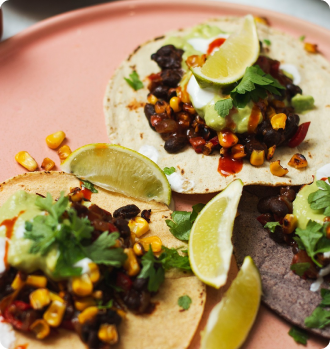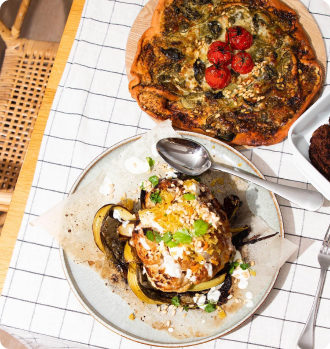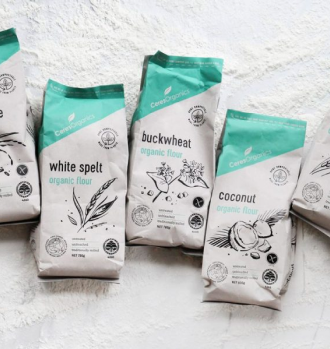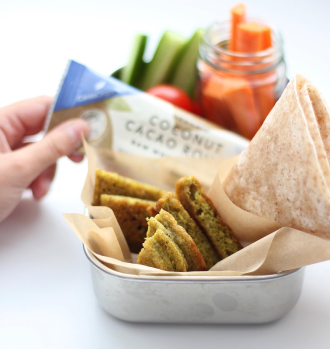
At Ceres Organics, we’ve always believed that food should be grown and produced in harmony with nature. That same care extends to how it’s packaged. This goes hand in hand with our purpose: to bring healing to Earth and humankind.
Packaging plays a vital role in protecting our food, but it also presents a big sustainability challenge. We know packaging can never be an afterthought, especially for a business grounded in care for people and planet. Our packaging journey has always been one of thoughtful evolution. As with many aspects of sustainability, the path is rarely simple. It requires ongoing innovation, tough decisions, and a willingness to adapt as new information and technologies emerge.
Here’s an honest look at where we are on our packaging journey.
Why Packaging Matters and Why It’s Complicated
We’re often asked why we still use plastic packaging. Isn’t there a better option?
As an organic business, having a positive impact on the planet is central to everything we do, and reducing our reliance on traditional plastics is an important part of that. But it’s not the only part. Food waste is one of the most significant environmental issues we face, and preventing it must remain a top priority. Behind each certified organic product is a deep investment of time, care, and natural resources. If we are to make quality organic food part of everyday life, we need to ensure it stays safe and fresh.
We face several challenges in moving completely away from traditional plastic packaging. The biggest being that, as an organic company, we don’t treat our products with anything. This makes them more sensitive to moisture, oxygen, and pests. Without strong packaging, we risk spoilage, contamination, and food waste — all of which carry their own environmental consequences.
Plastic, despite its shortcomings, currently offers the best protection for many of our products. We know it’s not perfect. That’s why reducing our reliance on plastic, while ensuring food quality, remains a top priority as we explore better alternatives.
Innovating with Purpose: Compostable Packaging
In 2017, we launched a world-first innovation: a transparent, resealable, triple-layer home compostable pack. This breakthrough allowed us to remove traditional plastic without compromising product integrity or shelf life. It was an exciting step forward, and we hoped it would help drive broader industry change.
However, the practical challenges gradually became clear. While compostable packaging works beautifully in theory, it relies on people having access to composting systems. Unfortunately, New Zealand’s current waste infrastructure is not designed to support home compostable packaging at scale. Most households do not have suitable home composts, and industrial composters often will not accept packaging due to contamination concerns. Without proper disposal, compostable packs can end up in landfill, where they are unable to break down properly and may even contribute to methane emissions.
Given these limitations, we’ve paused further rollout of compostable packaging. We’re continuing to monitor developments and remain hopeful that infrastructure and behaviour will catch up with the technology.
The Path We Are On
Progress never stands still at Ceres Organics. We are exploring and investing in a range of other options that align with our values and support our purpose to bring healing to Earth and humankind.
Why Soft Plastics?
We’ve been a long-standing supporter of New Zealand’s voluntary soft plastics recycling scheme, now in its ninth year. While it may not be perfect, this is currently the only nationwide option for dealing with flexible packaging without sending it to landfill. All of our flexible packaging is designed to meet the requirements of this programme, at a minimum.
There are now collection bins at around 300 locations, giving access to 87 percent of New Zealanders. In FY24, the scheme collected 745 tonnes of post-consumer soft plastics, which were recycled into approximately 80,000 posts. All collected material is processed in New Zealand by Future Post and SaveBoard, turning waste into useful, long-lasting products.
Plastic Optimisation
- Introducing single-material plastic structures, to enable recyclability through potential future kerbside systems. This technology will soon rolled out across our grains range.
- Avoiding over-engineering by minimising the weight of materials used.
- Prioritising #1 plastics (such as PET) when rigid plastic is required, as these are the most widely recycled.

Glass: A Circular Choice
Glass remains one of the most sustainable packaging options available. It doesn’t degrade with use, is chemically stable, and is widely accepted in recycling systems. Around 20 percent of our product range is packaged in glass, including peanut butters, tahini, and apple cider vinegar. Many of these jars and bottles are produced locally using recycled glass and natural raw materials. However, glass can present transportation challenges due to its heavier weight.

Reducing Waste Across Our Operations
Our commitment to waste reduction extends beyond product packaging. In our warehouse, for example, we’ve phased out plastic bubble wrap by reprocessing incoming cardboard into shredded protective material. It’s a small change that has significantly reduced our plastic use in shipping.
Bulk Ingredients for a Lighter Footprint
For customers and retailers looking to minimise packaging, we offer a wide range of organic ingredients in bulk. This format is ideal for refill stores, food service, or anyone set up to buy in larger quantities. Bulk packaging helps cut down on single-use materials and reduces emissions per kilogram of food transported, all while delivering the same trusted organic quality. Explore our Refillable range here.

Always Evolving
We’re proud of the steps we have taken, but we know these is a lot more to do. Sustainable packaging is not about finding a single quick fix. It’s about rethinking systems, embracing innovation, and making thoughtful, responsible choices that take the full lifecycle of a product into account.
Our promise is to keep moving forward, to keep asking better questions, to support smarter solutions, and to stay true to our purpose to bring healing to Earth and humankind.
Thank you for being on this journey with us.







